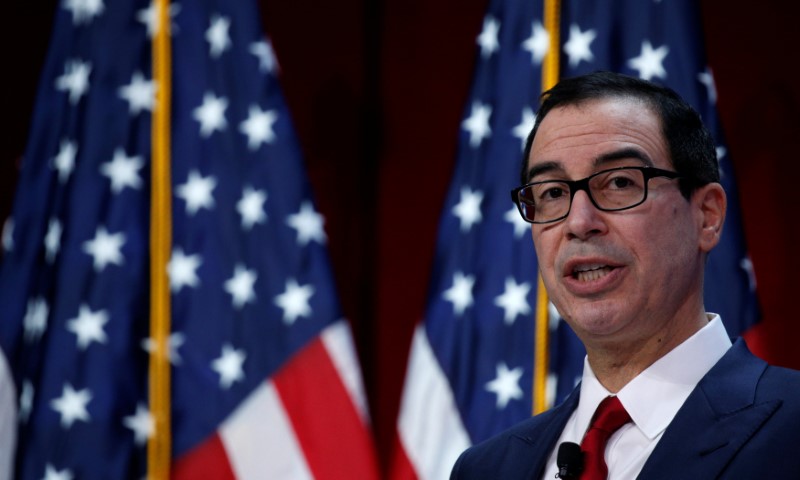By Ginger Gibson
WASHINGTON (Reuters) - The U.S. Congress will need to raise the nation's debt limit by early to mid-October to avoid defaulting on loan payments, the Congressional Budget Office said in a report on Thursday.
Treasury Secretary Steve Mnuchin has suggested his agency could hit the debt ceiling in September, and has encouraged Congress to raise the limit before the lawmakers go on their August recess. Republican leaders in Congress have begun having bipartisan discussions on the matter in the House.
The U.S. government has a statutory limit on how much money it can borrow to cover the budget deficit that results from Washington spending more than it collects in taxes. Only Congress can raise that limit.
The updated deadline will do little to diminish the urgency in Congress to act on the debt ceiling. Lawmakers will be still be pressured to tackle the increase before September, when funding the government will become their primary focus.
The CBO report pointed to slower-than-expected tax receipts this year, a factor that Mnuchin has cited as a reason to raise the debt ceiling sooner.
Lower tax payments were cited also as a factor in an increase in the deficit estimate. The CBO increased the deficit estimate for the current fiscal year to $693 billion, a $134 billion increase from its January estimate.
The report factors in only current law that has been approved by Congress, and does not include proposals that have been made by President Donald Trump in his budget proposal released earlier this year.
Congress continues to struggle with completing its hefty to-do list.
In addition to raising the debt ceiling, Congress must pass a government spending bill before the end of September or face a government shutdown in October. This aligns the deadlines for the debt limit and the spending bill, creating the potential for them to become intertwined. Congressional leaders have expressed a desire to see the two kept separate to avoid getting the debt ceiling increase caught up in the politics of government spending.
Congress also is trying to repeal the Affordable Care Act healthcare law and to overhaul the tax code – two efforts that have stalled and consumed more time than was initially expected.

And there still are forces pushing against the effort to find agreement on the debt ceiling, including some Republicans who say an increase in the limit should accompany a cut in spending. And there are Democrats who have warned they will not contribute votes to legislation increasing the level if tax cuts for the rich add to the deficit.
